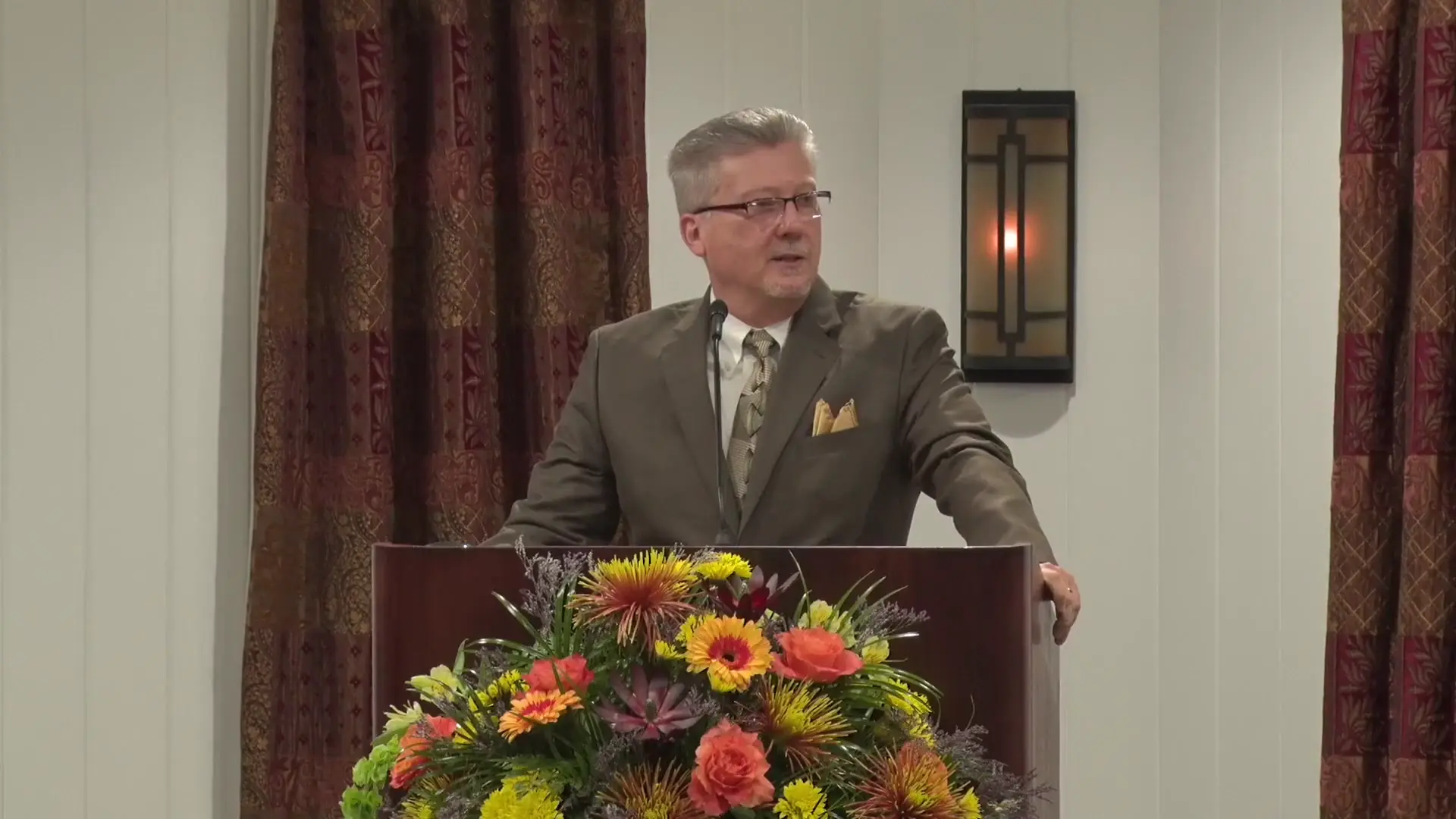Filter by Categories
Hands That Shed Innocent Blood
Sermon by Martin G. CollinsThe shedding of innocent blood through abortion has marked a profound culture of death in this nation since the US Supreme Court decision of Roe v. Wade on January 22, 1973. This decision struck down all state laws protecting the lives of unborn children, legalizing abortion in all 50 states for the full nine months of pregnancy under broad justifications of social, economic, and health reasons, including mental health conditions. Over 54 million unborn children have been legally murdered in America, a number surpassing the total US military deaths in all wars combined, revealing a staggering loss of life. Isaiah prophesied that when Israel sinned, separating her from God, the nation becomes known for lying and the shedding of innocent blood. God declares that He does not intervene because man, by his own choice to sin, is left to his own devices. The scale of this bloodshed, with over one million abortions performed annually in the United States alone, including through drugs like RU486, underscores a pervasive disregard for life. Late-term elective abortions, such as partial-birth abortions involving brain suction, have been conclusively shown to occur even in the last trimester, despite denials from abortion advocates. God's Word, as seen in passages like Exodus 20:13 and Deuteronomy 5:17, forcefully prohibits murder, identifying abortion as the unjustifiable taking of an innocent human life. In Exodus 21, God's law concerning violence indicates that if a fatal miscarriage is caused, capital punishment is required, suggesting His judgment on premeditated abortion would be no less severe. All life falls under God's law, and as the Lord of life, His will governs, not the state, individual, parent, or doctor. Man and nations may deny this, but they cannot escape the consequences of violating it. The biblical perspective affirms that life begins at conception, a truth supported by scientific understanding of human development as the union of sperm and ovum forms a living, human, complete being. God's acknowledgment of life at this earliest stage, as reflected in scriptures like Psalm 139 and Jeremiah 1:5, underscores the sanctity of the unborn. To deliberately destroy this life is deemed murder by the Creator, punishable by eternal judgment unless genuine repentance occurs. This nation, having embraced violence against the unborn for 40 years, stands on borrowed time, awaiting the day of God's wrath for the bloodshed it has sanctioned.
The Talking Blood (1994)
Sermon by John W. RitenbaughThe blood of Christ, a propitiation or appeasing force, the only means to satisfy God's pure sense of justice, is a testimony of God's intense love for us.
The Talking Blood (Part One)
Feast of Tabernacles Sermon by John W. Ritenbaugh (1932-2023)Christ admonishes His people to prepare for difficult times by cultivating a close relationship with their Savior. Apart from Christ, we can do nothing.
The Sixth Commandment
Bible Study by Martin G. CollinsThe commandment against murder is the one most universally followed by man. But Jesus shows there is much more behind it than merely taking another's life.

Why Did Jesus Have to Die by Crucifixion?
'Ready Answer' by StaffCrucifixion is man's most cruel form of punishment. Why did Jesus need to die this way? What does it teach us? And was Jesus stabbed before or after He died?
Why Two Goats on Atonement? (Part One)
CGG Weekly by David C. GrabbeIn Israel, sins were symbolically placed on the altar throughout the year. On Yom Kippur, one goat's blood cleansed the altar; the second took away the sins.
The Value of Life
CGG Weekly by Richard T. RitenbaughIn the sixth commandment, God rules against the taking of human life, revealing how precious life is to God and should be to us.
What is Atonement?
Sermon by John W. Ritenbaugh (1932-2023)Man's estrangement from God is wholly man's fault. Atonement denotes the way harmony is achieved, making the entire world at one or reconciled with God.
Refuge! Refuge! (Part One)
Feast of Tabernacles Sermon by Martin G. CollinsThe cities of refuge highlight the great importance God placed on the sanctity of life, especially in beings created in God's image.

Jesus in the Feasts (Part Four): Atonement
Sermon by Richard T. RitenbaughThe Day of Atonement emphasizes humanity's universal sinfulness, necessitating a divine solution. All humans from infants to seniors are incapable of redeeming themselves through charitable deeds or sacrifices. No human or animal offering has the capability to atone for sin. For this reason, the Creator God, Jesus Christ, became human, living sinlessly, offering Himself as the perfect, unblemished sacrifice, paying for the sins of all humanity, fulfilling the role of the ultimate sin offering. As the most solemn of the biblical feasts, this event points to the High Priest and atoning sacrifice. Leviticus 16 describes a two-goat ritual: one goat represents the payment for sin, while the second goat carries sins away, symbolizing sins total removal. Isaiah 53, as well as passages from the New Testament in Romans, Hebrews, Matthew, John, and I Peter all substantiate Christ's dual role in shedding His blood and bearing away sins, thereby reconciling humanity to God. This sacrifice grants access to Almighty God, enabling believers to pursue spiritual maturity under the guidance of Jesus Christ. Accepting Christ's sacrifice is only the beginning. Our Savior commands believers to strive for spiritual perfection, aligning themselves with God's will, yielding to Him as their Shepherd and High Priest.
The Sixth Commandment (Part One) (1997)
'Personal' from John W. RitenbaughOur society is becoming increasingly violent. The sixth of the Ten Commandments covers crime, capital punishment, murder, hatred, revenge and war.
Hebrews (Part Eleven)
Sermon/Bible Study by John W. RitenbaughHebrews emphasizes the infinite superiority of Christ's priesthood and one-time sacrifice as contrasted to the repetitive Aaronic sacrifices.

The Awesome Cost of Love
'Personal' from John W. RitenbaughWe assess costs and values all the time in our daily lives. We should employ the same process to God's love for us in giving His Son as the sacrifice for sin.